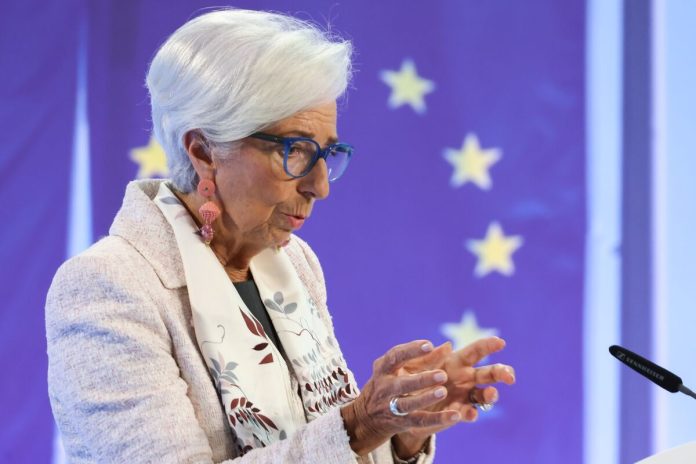While giving a report in London Christine Lagarde refused to give an answer about whether the European Central Bank will raise or hold interest rates next week, according to Bloomberg.
The president of the Frankfurt-based institution held in tension around one of the most undefinite decisions in its yearlong battle against inflation, focusing instead on challenges in communicating at an uncertain time.
Lagarde claimed: “Actions speak louder than words”, on Monday at a seminar in London organized by the European Economics & Financial Centre.
“We have increased our policy rates by a cumulative total of 425 basis points in the space of 12 months — a record pace in record time. And we will achieve a timely return of inflation to our 2% medium-term target”.
ECB officials meeting Sept. 14 have to estimate if the latest economic slowing is sufficient to warrant a first break in the relentless tightening cycle that began more than a year ago. At the previous meeting in July, Lagarde said policymakers could hike or hold as they increasingly focus on data to guide their actions.
New euro-zone inflation data published last week showed a closely-watched underlying measure slowed to 5.3% in August from 5.5% in the previous month. Officials are also noticing that features that the contraction in private-sector activity has grown.
According to money markets, around one-in-four are odds on the ECB raising rates a quarter-point to 4% next week. That compares to as much as a 60% chance before economic data showed core inflation in the euro area is slowing down.
Lagarde and her colleagues are still waiting to estimate the ECB’s in-house economic forecasts, which are a key part to the puzzle of rate decisions. Some more aggressive-minded policymakers have continued to push for another rate increase, though others acknowledge a more clouded picture.
Last week Isabel Schnabel, the Executive Board member in charge of markets, said that while inflation stays high, growth prospects are worse than officials predicted in June. With a pre-decision blackout period kicking in on Thursday, scrutiny on comments is intensifying.
Portugal’s Governing Council member Mario Centeno said there is a risk of raising interest rates too far because the economy adapts to new financial conditions. Other officials, including Executive Board members Fabio Panetta and Frank Elderson, did not take part in discussing the matter of the upcoming decision.
Similarly, Bundesbank President Joachim Nagel discussed bank reserves in his comments delivered in Frankfurt on Monday. He signaled he would be in favor of raising minimum reserve requirements after a decision in July by the ECB to stop paying interest on them. He said:
“We should be open to do more, the financial system shouldn’t take for granted that this is the end of what we have to do in the Governing Council, how to really tackle this excess liquidity story”.
